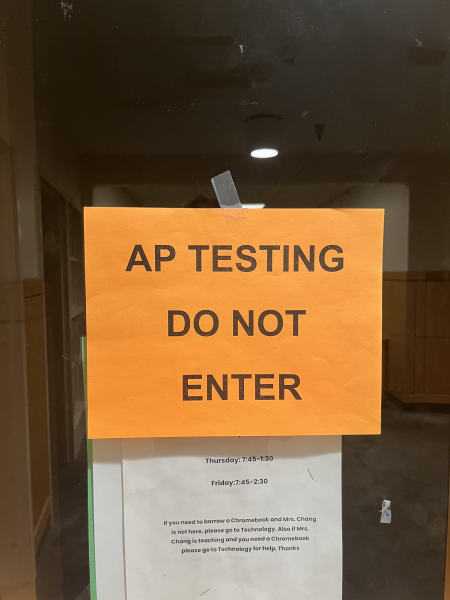Photo by Alex Wilt
The AP exam is the ultimate culmination of a school year’s worth of college equivalent material. AP classes are offered for a multitude of topics in many high schools across the country. With the AP exam comes the possibility of earning college credit should a student perform well enough. Students as young as sophomores have the ability to take these classes. Although, the amount they are able to take is restricted by their grade level. The AP exam can be the most stressful time of the year for students but as long as they keep a clear head and the right perspective they can fly through with ease
A lot differs between an AP class and a CP or honors level class. The most pertinent difference is that these classes don’t just prepare you for college; they expose you to real college level material. The big differences in work and stress load really depend on which class a student takes. For example, if a student takes a class like AP Physics, they can expect longer and more difficult work in concurrence with the nature of the course material. And vice versa, if a student were to take AP Environmental Science they could expect long but easier work. That being said, a lot of the stress that arises from AP classes and exams comes about due to kids thinking that they have to take these harder AP classes in order to look better to potential colleges. Ms. May, a guidance counselor at IHS, says “some students take them because they think that they have to; but they should really only do it if they are interested in the subject.” The number one concern for students that want to take AP classes is the difficulty that accompanies the class. From the homework, to the tests, and finally to the AP exam. To many students the cumulative exam is the point in their AP journey in which they feel the most stressed or anxious. However, little else is to be expected when new coming or even seasoned AP students come face to face with an exam that has such a particularly rigorous reputation for a reason. And when these students seem to be caught in the grips of their worry, it is helpful to remember the wise words of AP Psychology teacher Mr. Caulfield: “You’ve already learned the material. Now it’s just review.” Ms. May echoes a similar sentiment, saying “the exam is stressful but I see that the work students do all year is more stressful.”
With these differences in workload, class pace, and stress levels, an upcoming sophomore or junior may be confused as to how many AP courses they should take and in what subjects. When picking an AP class, you want to think about what you would want to have a career in and pick classes that generally align with that idea. If you don’t know what you want to do yet it’s a good idea to pick classes that develop skills that are general in a wide variety of subjects. In an interview with Sau-Lok Ma, a member of the top five percent of the senior class, he stated that “AP Lang and Lit have been the most widely useful courses because they helped develop [his] reading and writing skills which have in turn helped [him] with other classes.” When asked about what he would change about how he picked classes throughout high school, Sau-Lok said that he wished he had “tried an AP class as a sophomore so I could learn what an AP class is like in regards to pacing and workload.” As of right now, the main two AP classes picked by sophomores are AP U.S. History and AP Comp Sci A, both of which are great choices in very different subjects. Although courses like these are generally beneficial, it’s also very important to make sure you aren’t overloaded with work. A great idea is to ask seniors or other people who have taken a class what the typical amount of homework is and how challenging the content can be.
There are a myriad of benefits to taking at least one AP class in high school such as potentially skipping a class in college, gaining more knowledge in a field you may study more in the future, and increasing your GPA. It’s definitely beneficial for people to take at least one AP class, but the question is how many and which ones? It’s best to try to take an AP as early as possible to get an understanding for how classes work, pick classes that either interest you or are related to what you want to study, and most importantly, don’t overload yourself with work.




